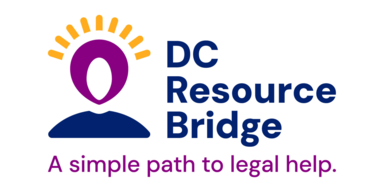
On June 1, D.C. Superior Court is scheduled to roll out new “ex parte proof” hearing notices in response to a 2016 D.C. Court of Appeals’ opinion criticizing the court’s continued use of legal jargon.
It has been almost three years since the Court of Appeals issued its decision in Wylie v. Glenncrest, reversing and remanding an eviction case where the trial court declined to vacate a default judgment entered against an unrepresented tenant after her landlord told her she did not need to come back to court. Ms. Wylie had come to court on her first court date, where she met her landlord’s attorney. The two of them agreed to a one-month continuance. The landlord’s attorney later told Ms. Wylie that she did not need to return to court if she caught up on her payments and, so Ms. Wylie did not show up for the further initial hearing. Unbeknownst to Ms. Wylie, that hearing went forward, and a default was entered against her. The court then scheduled an “ex-parte proof” hearing.
Although the court docket indicated that the court sent Ms. Wylie notice of this ex parte hearing, Ms. Wylie testified that she never received it. In a lengthy footnote, the Court of Appeals expressed concern that even assuming Ms. Wylie had received the notice, the notice stated only that an “Ex Parte Proof Hearing” would be held and did nothing to explain what this meant:
[T]he notice does not explain what the purpose of such a proceeding might be—i.e., to rule on the landlord’s request for the entry of a default judgment and, in cases based on the tenant’s nonpayment of rent, to determine the amount a tenant owes and must pay to avoid eviction and retain possession of her home. This meaning is hardly obvious even to a reader accustomed to legal jargon (“ex parte,” the only descriptor, ordinarily means that a proceeding is held in the absence of the opposing party; but in the court’s form notice, the tenant is directed to attend). We expect it is entirely unclear to most pro se litigants.
Both the Code of Judicial Conduct and the District of Columbia Court’s Strategic Plan, stress the importance of ensuring that unrepresented litigants understand the proceedings and thus have an adequate opportunity to be heard. But, up until now, the ex parte proof hearing notice—and indeed, many other court notices—fail to use “plain, simple, and straightforward language” that would help the public better understand court processes and proceedings.
Legal Aid looks forward to continuing to collaborate with the Court to improve its notices and forms so that unrepresented litigants have a better understanding of how to navigate the court system without the benefit of counsel by their side.




